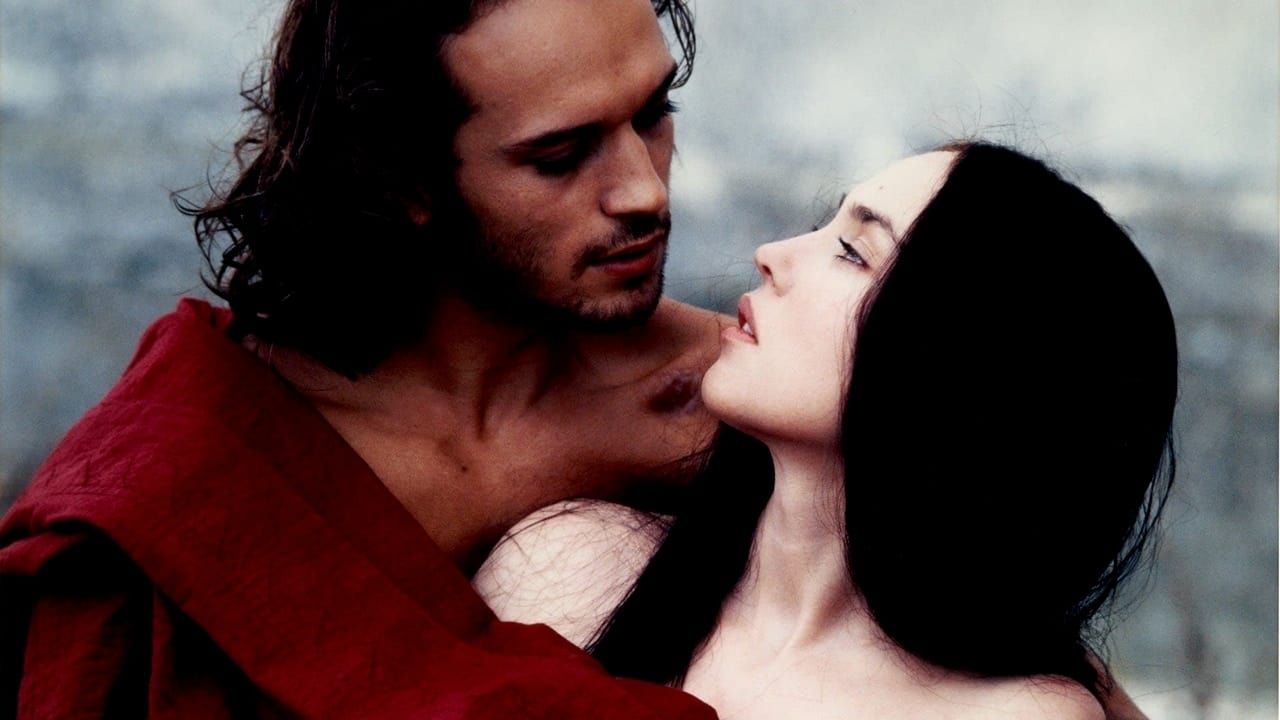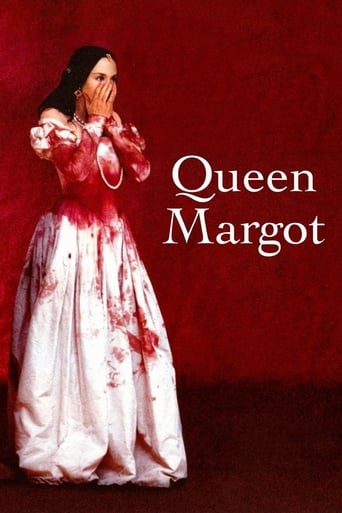Scanialara
You won't be disappointed!
AniInterview
Sorry, this movie sucks
Smartorhypo
Highly Overrated But Still Good
Brendon Jones
It’s fine. It's literally the definition of a fine movie. You’ve seen it before, you know every beat and outcome before the characters even do. Only question is how much escapism you’re looking for.
the-pyat
The lurid makes a surprisingly bland backdrop against Daniel Auteuil's transcendent performance as a sensible man caught among madness. Once you get past the massacre and the sex, the story picks up, and you may find yourself taking a small interest in what happens to Margot as she begins to betray more human qualities. Furthermore, other elements of the story do remain in the memory, such as the poisoning scene. Really, it's handled quite well. But the beginning is regrettable. Wanna-be ballet- dancers drizzled with blood verges on a spoof of a massacre. If meant to be taken seriously, as this was, it's an obscene gesture to any witness to or victim of a real one. It turned me off to the movie, and the sex scenes made for more, "Oh come on" moments. Even so, I watched it again, fast-forwarding through the silly, tasteless parts to watch this certain actor carry out a gem of a performance. Here, as in other films, you have to hand it to Auteuil. He's a brilliant actor.
JoshuaDysart
The performances in this film are so energetically pitched as to occasionally be laughable. The period lavishness is pushed into anachronistic excess. Virtually every single scene is crowded with extras, the frames dense with faces and the leads are almost all distractingly gorgeous.Every single shot is like a Late Renaissance painting, you can hit pause anywhere and be delighted by the richness, color and detail. It's drenched in blood (people actually sweat blood in this movie) and animated by extraordinary music. In its romantic fire the film is unapologetically, almost satirically, French.If sumptuous spectacle done with tremendous craft is your bag, then this thing is a monster of a flick. But if script logic and nuance is something you demand, this is going to be a long one. Personally, as a piece of pure cinema to be experienced, I loved it. It succeeds at exactly what it sets out to do… that is, be gorgeous and swooning and grand at the cost of all else
surajalva
La Reine Margot is about the St. Bartholomew's day massacre and the intrigues at the court before and after the event. It uniquely tries to denominate Catherine de Medicis as the evil culprit as can be seen, in a way, by her terrible Italian accent. Even though till today the orchestrator of the massacre is in doubt, the movie seems to place the blame on an outsider, on an Italian. Ah, the French, always weary of the outsider. It is close to hilarious to see the portrayal of Charles the ninth as a hypochondriac/drunk, always under the control of external influences. External from himself. Himself representing France. An acute sense of this movie can be derived from a dialog lasting fifteen or so seconds, and which I could not get out of my head {and I kept telling myself throughout the film}. It is the scene where Margot tells Charles XIX, after he witnesses the massacre: Calme-Toi, Calme-Toi. The film is a stupid, overly dramatized piece of work that plays to the emotions of the French. It is a crime against historical fiction and should be persecuted to the fullest extent; the penalty being its burning. The burning of all its copies, original and duplicate reels, so that not a word of it might be spoken of; ever.
writers_reign
I can't recall ever being disappointed in a film written by Daniele Thompson who has gone on to prove herself a brilliant writer-director also. Nothing if not versatile she began with one of the biggest box-office hits in French cinema, La Grande Vadrouille, which is still being revived close to half a century later and continued in comedic vein with such titles as Les Folies de grandeur and The Adventures of Rabbi Jacob whilst along the way launching the career of Sophie Marceau via La Boum - if these two ladies were fillies rather than filles we could employ handicapper terms to note that Marceau has just released her own second film as writer-director - before turning serious as she does here and also with Those Who Love Me Can Take The Train. This time around she is working with historical facts as distorted through the prism of Alexander Dumas and giving them a new coat of paint before setting them before Isabelle Adjani, Virna Lisi, Daniel Auteuil, Jean-Huges Anglade, Pascall Greggory, Vincent Perez and, if you're paying attention to every frame, Valeria Bruni-Tedeschi, all of which, with the possible exception of Perez, turn in fine performances modulating toward the exceptional in the case of Virna Lisi's Catherine de Medici. The plot has been discussed elsewhere so suffice it to say that as costume dramas go this is among the best even if the direction is the odd light year behind Thompson's screenplay.

